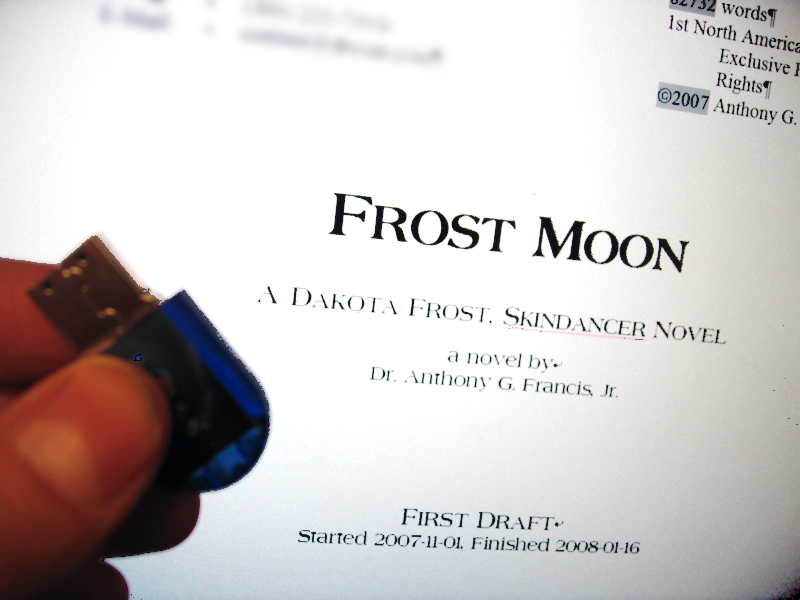So my friends are reading Frost Moon and giving me feedback, which I'm letting pile up while I get other work done (and so my committment to what I just wrote can evaporate to the point I can read it objectively). But I've already started the sequel, Blood Rock. I wrote a lot of Frost Moon in the Barnes and Noble Writing Group at Steven's Creek, but I've avoided reading Blood Rock there because I thought it might be a spoiler for my alpha readers who were still reading Frost Moon.
Now I know holding the new chapters back was a good idea.
My mother-in-law just finished Frost Moon and said "I can't wait for more!". So I sent her the first chapter of Blood Rock, which she immediately printed out intending to read it. But Sandi's dad got to it first. He's read part of Frost Moon, but had stopped and was waiting for his wife to record it on tape so he can listen to it on his long over-the-road trips. But he sees Blood Rock lying around, picks it up, and BAM! page one, gets a huge spoiler for the ending of Frost Moon.
There are obvious spoilers in the first chapter of Blood Rock: the central character of the series is still alive, as are other people whose fate was in doubt. I was worried that people would find that out, but in all truth you could guess that from the fact that it's a book in a 'genre' series and not a 'literary' one-shot novel. It's going to be a story about someone's continuing adventures, not about the unfortunate events leading up to someone's untimely death.
But there are also NON-obvious spoilers: who the main villain was, what he was doing, and what happened to him. I won't go into any more details, but suffice it to say these are MUCHO spoilers if you haven't finished the first book. I hadn't been worried about that, but in hindsight this is blindingly obvious. So I am very glad I didn't read this at the writing group!
As my mother-in-law and father-in-law both pointed out, it's rare for a book in a series to give away the ending of another book in the series. And so I need to be careful about how I refer to the past. While I can't hide the end of Frost Moon - it's integral to the plot of Blood Rock - I can instead hold these revelations back to the last possible minute. And now that I think of doing that, it seems like it will make the point when I refer to it even more of a shock. Nice.
I've never had this problem before. It's a nice problem to have... :-)
-Anthony


